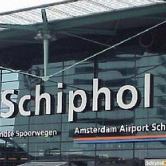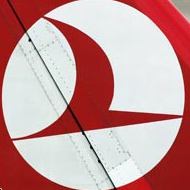 Dutch investigators have determined that a faulty altimeter contributed to the fatal crash of a Turkish Airlines plane near Amsterdam’s Schiphol Airport last week.
Dutch investigators have determined that a faulty altimeter contributed to the fatal crash of a Turkish Airlines plane near Amsterdam’s Schiphol Airport last week.
The Dutch Safety Board investigating the crash reported that one of the two altimeters, which gauge the altitude of the aircraft, had indicated the plane was at about negative 8 feet when it was actually at 1,950 feet.
The Boeing 737-800 was on auto-pilot, and the faulty altimeter prompted it to throttle back the engines in preparation for touchdown.
The automatic throttle drastically cut power to the engines for nearly two minutes as the airplane descended, causing the plane to lose speed and stall.
According to the conversation recorded between the captain and two first officers in the cockpit, they were aware of the faulty altimeter but did not react until the stall warning alarm sounded. At that point the crew gave the plane more fuel to restart the engines and brought up the nose, but the plane was already too close to the ground.
Although the right altimeter was giving correct readings, the pilot-side altimeter on the left is the one to trigger the plane’s automated systems, unless overridden.
 While it’s not unusual for planes to be on autopilot during approach and descent, the crew usually takes over at a few hundred feet.
While it’s not unusual for planes to be on autopilot during approach and descent, the crew usually takes over at a few hundred feet.
The pilot had been notified that the left altimeter wasn’t working correctly, and previous flight recordings had indicated that the altimeter had problems twice before during landing.
The stalled plane fell from the sky at 108 mph, crashing tail-first into a muddy field, killing nine and injuring 84.
Turkish Airlines has announced it plans to pay damages to all of the passengers on the plane, not just those who were injured and the families of those who died in the crash as previously announced. The airline will pay at least €5,000 to passengers, up to €10,000 to those injured and €50,000 to the families of those who were killed.
By Sarika Chawla for PeterGreenberg.com.
Related links: New York Times, Seattle Times, BBC, Radio Netherlands
Related links on PeterGreenberg.com:












